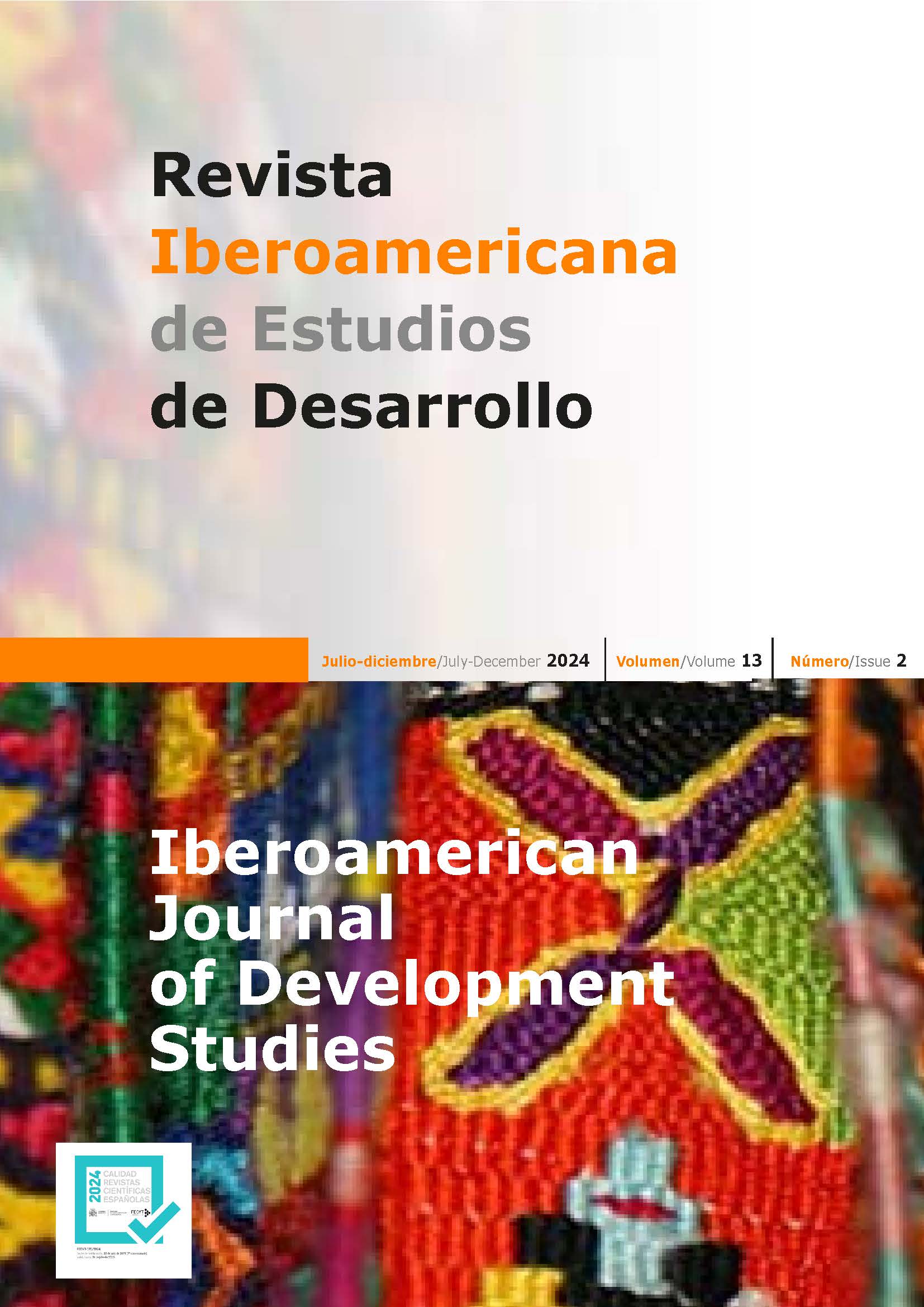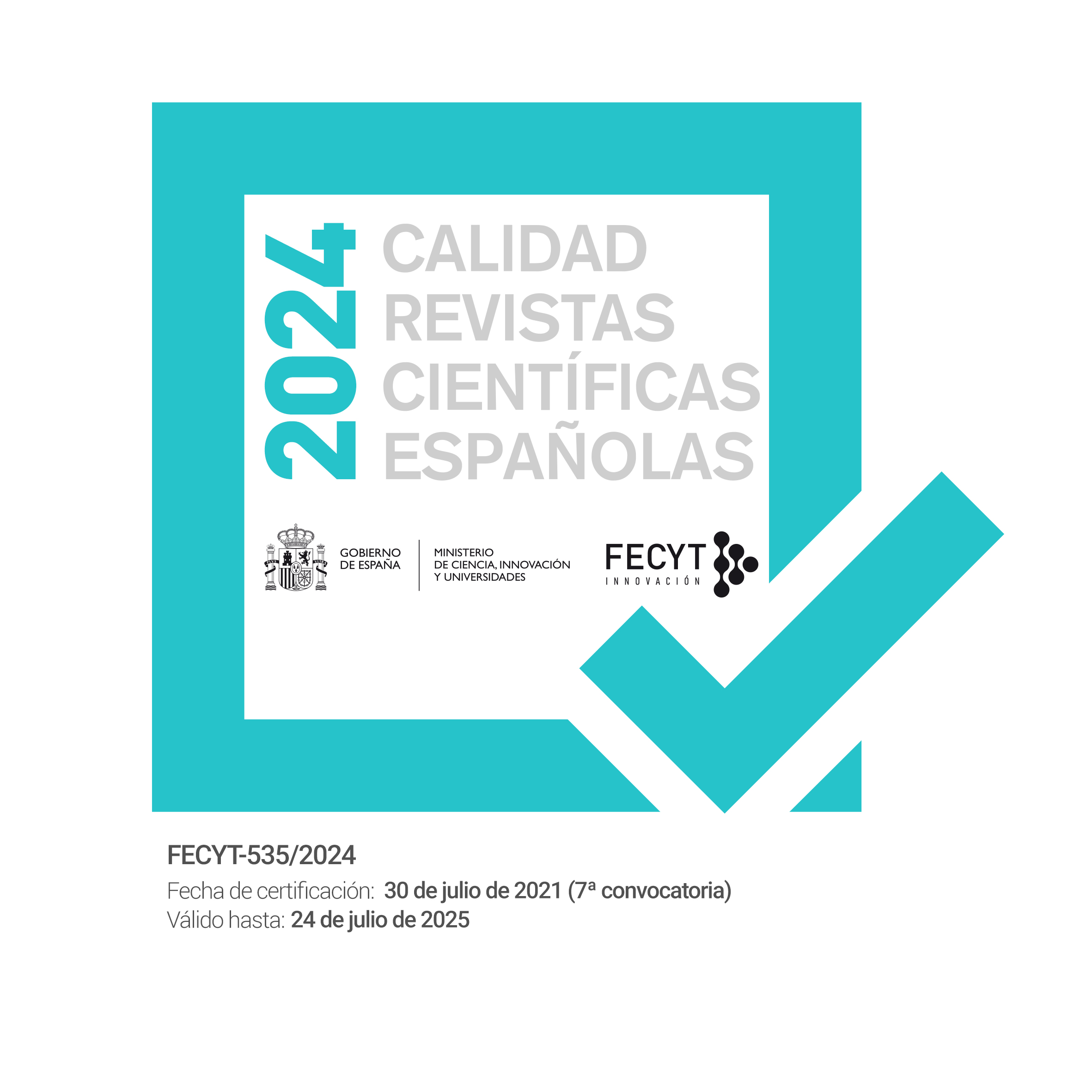The rise and fall of the Bank of the South: challenges in Latin American post-neoliberal regionalism
DOI:
https://doi.org/10.26754/ojs_ried/ijds.9963Keywords:
Latin American regionalism, Brazilian foreign policy, Venezuelan foreign policy, Bank of the South, New Regional Financial ArchitectureAbstract
In the early 21st century, the rise of left-wing administrations in South America bolstered regional frameworks. The proposal to establish a new regional financial architecture materialized as the Bank of the South, formalizing its Constitutive Treaty in 2009. Despite this, the Bank remains uncapitalized. This study examines its rise and decline, addressing factors behind its establishment; the impact of divergent regional approaches by Brazil, Argentina, and Venezuela, and the reasons for its decline in the second decade of the 21st century. The research attributes the Bank’s demise not only to the crisis in post-neoliberal regionalism but also to internal disagreements among proponents. Drawing on a thorough literature review, primary source analysis from the Bank, and insights from policymakers’ memoirs, this research provides a nuanced understanding of the Bank of the South’s trajectory.
Downloads
References
ALVES EEA, BIANCARELI A (2015) Cooperação financeira e distintos projetos regionais: o caso do Banco do Sul. Nova Economia 25(3): 717–736.
BANCO DO SUL (2007). Ata Fundacional do Banco do Sul. Buenos Aires.
BANCO DO SUL (2009). Convênio Constitutivo do Banco do Sul. Porlamar.
BARROS PS, GONÇALVES JDSB (2021). Crisis in South American regionalism and Brazilian protagonism in Unasur, the Lima Group, and Prosur. Revista Brasileira de Política Internacional 64.
BENZI D, GUAYASAMÍN T, VERGARA M (2016). ¿Hacia una nueva arquitectura financiera regional? Problemas y perspectivas de la cooperación monetaria en el ALBA-TCP. Revista Iberoamericana de Estudios de Desarrollo − Iberoamerican Journal of Development Studies 5(1):32-61.
BUSSO A (2014). Los vaivenes de la política exterior argentina re-democratizada (1983-2013): reflexiones sobre el impacto de los condicionantes internos. Estudios Internacionales 46(177):9-33.
CARCANHOLO MD (2011). O Banco do Sul: arquitetura institucional e processo de negociação dentro de uma estratégia alternativa de desenvolvimento na América do Sul. In: Viana AR, Barros PS, Calixtre AB (eds.). Governança global e integração da América do Sul. IPEA, Brasília.
CARVALHO CE (2012). Integração e cooperação financeira na América do Sul em tempos de bonança externa: algumas reflexões. In: Serbin A, Martínez L, Júnior HR (eds.). El regionalismo «post-liberal» em América Latina y el Caribe: nuevos actores, nuevos temas, nuevos desafios. CRIES, Buenos Aires.
CASTAÑEDA JG, MORALES MA (2009). Leftovers: Tales of the Latin American Left. Routledge.
CASTIGLIONI L (2013). La nueva arquitectura financiera regional. CLACSO, Buenos Aires.
CERVO AL, LESSA AC (2014). O declínio: inserção internacional do Brasil (2011-2014). Revista Brasileira de Política Internacional 57:133-151.
GIACALONE R (2013). Venezuela en UNASUR: integración regional y discurso político. Desafíos 25(1).
GLOBO (2003). Brasil diverge sobre criação do Banco do Sul. https://g1.globo.com/Noticias/Economia_Negocios/0,,AA1517639-9356,00-BRASIL+DIVERGE+SOBRE+CRIACAO+DO+BANCO+DO+SUL.html, accessed September 21, 2023.
GRIFFITH-JONES S, XIAOYUN L, SPRATT S (2016). The Asian Infrastructure Investment Bank: What Can It Learn from, and Perhaps Teach To, the Multilateral Development Banks? (No. IDS Evidence Report; 179). IDS.
HAAS EB (2004). The uniting of Europe: political, social, and economic forces, 1950-1957. University of Notre Dame Press, Indiana.
HART-LANDSBERG M (2009). Learning from ALBA and the Bank of the South: Challenges and Possibilities. Monthly Review 61(4):1.
LA NACIÓN (2007). Banco del Sur tendrá participación igualitaria. https://www.nacion.com/economia/banco-del-sur-tendra-participacion-igualitaria/WAWVQ4TSLVGDTF2HEX63U2OAVY/story/, accessed September 21, 2023.
LANDER E (2020). Crisis civilizatoria: experiencias de los gobiernos progresistas y debates en la izquierda latinoamericana. Bielefeld, Bielefeld University Press.
LÓPEZ MAYA M (2016). La crisis del chavismo en la Venezuela actual. Estudios Latinoamericanos 38:159-185.
MALAMUD A (2009). Fragmentação e divergência na América Latina. Relações Internacionais 24:61-73.
MARIANO KLP, RIBEIRO CCN (2020). A pluralidade institucional como ferramenta política na América do Sul: sobreposições organizacionais e fragmentação regional. Revista Tempo do Mundo 23:35-60.
NOGARA TS (2020). Crítica ao conceito de subimperialismo: a dimensão sul-americana da política externa brasileira e as limitações das análises dependentistas. Monções: Revista de Relações Internacionais da UFGD 9(17):506-534.
NOGARA TS (2022). South American Regionalism between Brazil and Venezuela: Divergences during the Lula and Hugo Chávez Administrations. Contexto Internacional 44(3).
NOGARA TS, WOBETO VL (2019). Implicações da crise migratória venezuelana para as políticas brasileiras de segurança e defesa: perspectivas para o equacionamento de conflitos. Espaço Aberto 9(1):23-42.
NOGARA TS, PAUTASSO D, NASCIMENTO CD (2020). Repercussões do desmantelamento da Revolução Cidadã: as tensões políticas no Equador de Lenín Moreno. Espacio Abierto: Cuaderno Venezolano de Sociología 29(3):87-102.
NOLTE D, COMINI NM (2016). UNASUR: regional pluralism as a strategic outcome. Contexto Internacional 38:545-565.
PAUTASSO D, NOGARA TS, UNGARETTI CR, DORIA G (2020). A Iniciativa do Cinturão e Rota e os dilemas da América Latina. Revista Tempo do Mundo (24):77-106.
PÉREZ PP (2012). La nueva arquitectura financiera regional, premisa indispensable para la integración latinoamericana. Perspectivas para la Integración de América Latina 121.
ROMERO CA, MIJARES VM (2016). From Chávez to Maduro: Continuity and change in Venezuelan foreign policy. Contexto Internacional 38:165-201.
SANAHUJA JA (2016). Regionalismo e integración en América Latina: de la fractura Atlántico-Pacífico a los retos de una globalización en crisis. Pensamiento Propio 44:29-75.
SERBIN A (2013). Atuando sozinho? Governos, sociedade civil e regionalismo na América do Sul. Lua Nova: Revista de Cultura e Política 90:297-327.
SINGER A (2018). O lulismo em crise: um quebra-cabeça do período Dilma (2011-2016). São Paulo, Editora Companhia das Letras.
STATISTA (2024). Venezuela: growth rate of the real gross domestic product (GDP) from 2014 to 2024. https://www.statista.com/statistics/370918/gross-domestic-product-gdp-growth-rate-in-venezuela/, accessed February 14, 2024.
STRAUTMAN G, SOARES D (2007). O Banco do Sul desde a perspectiva brasileira. In: Simpósio Internacional Sobre Dívida Pública Construindo Uma Nova Arquitetura Financeira. Anais. Caracas, 2007.
TOUSSAINT E (2008). Banco del Sur y nueva crisis internacional. Ediciones Abya-Yala, Quito.
TOUSSAINT E (2014). O Banco do Sul poderia ser uma alternativa; o mesmo não se daria com a proposta dos BRICS. IHU Unisinos, São Leopoldo.
UGARTECHE O (2023). Brasil vs. Banco del Sur. https://www.voltairenet.org/article151101.html, accessed September 21, 2023.
VAZ AC, NOGARA TS (2020). Evolución y ejes de la política exterior brasileña contemporánea. Anuario Internacional Cidob: 248-256.
WORLD BANK. GDP growth (annual %). https://data.worldbank.org/indicator/NY.GDP.MKTP.KD.ZG, accessed February 14, 2024.
Downloads
Published
How to Cite
Issue
Section
License
Copyright (c) 2024 Tiago Soares Nogara

This work is licensed under a Creative Commons Attribution-NonCommercial-NoDerivatives 4.0 International License.
Accepted 2024-02-28
Published 2024-11-06








